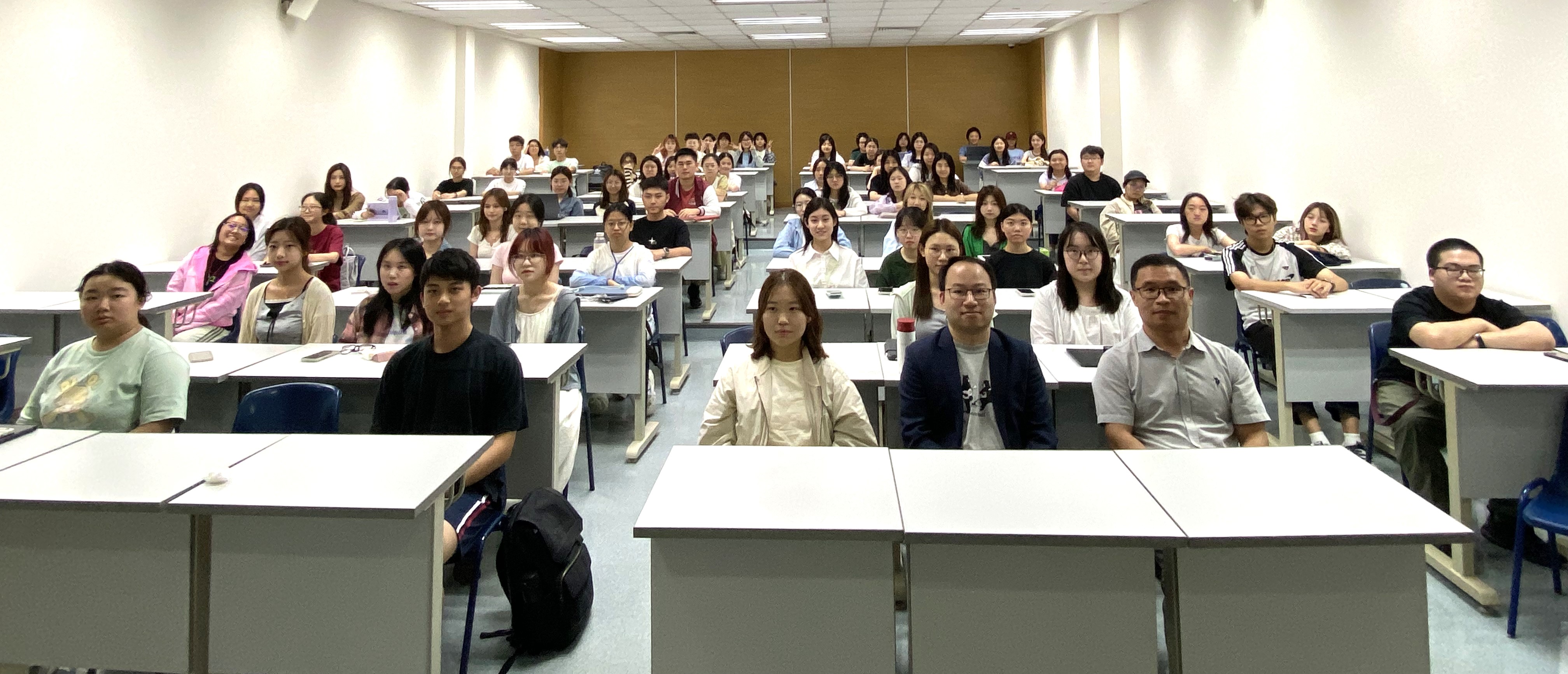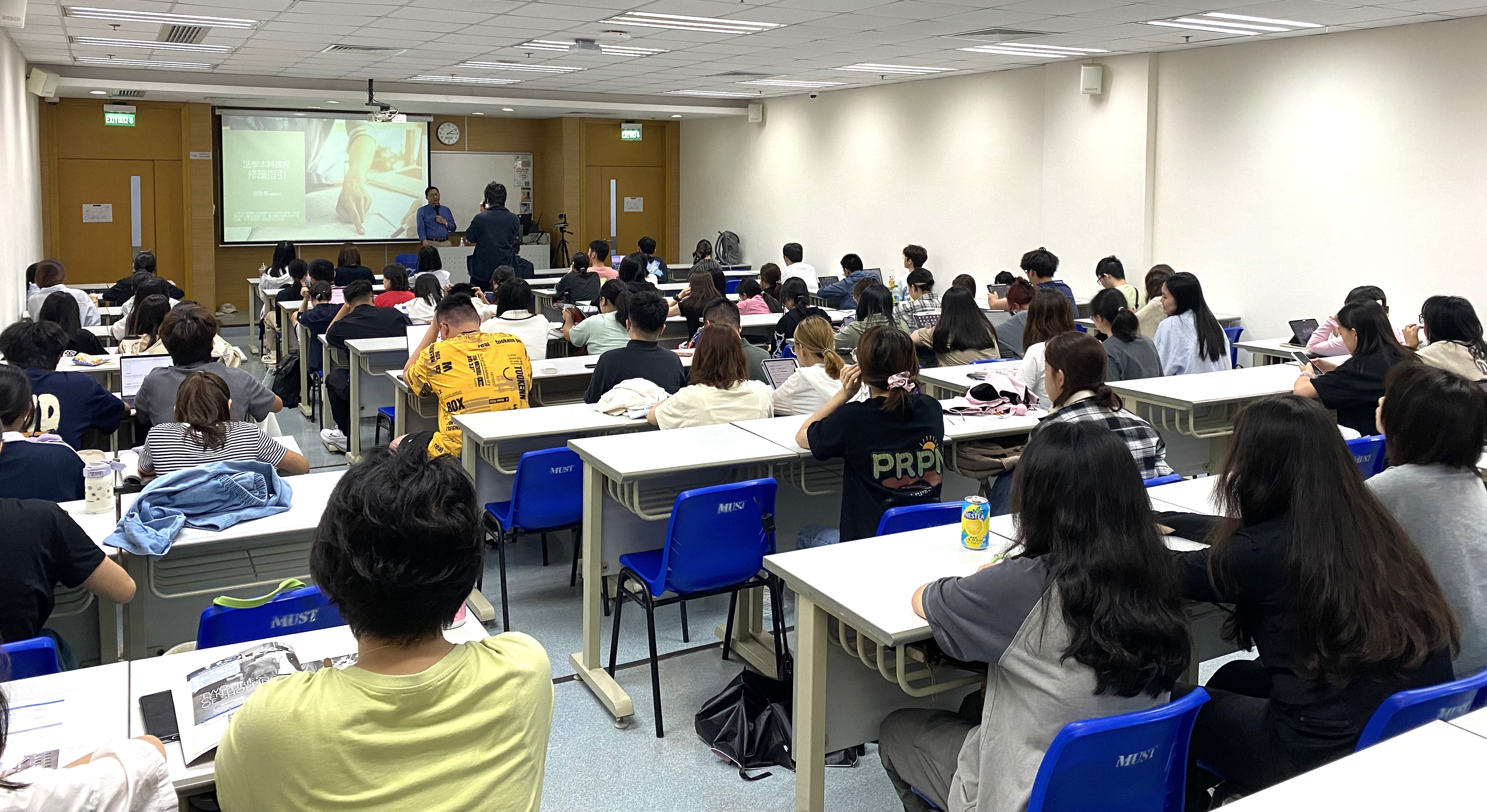In September 2024, the Faculty of Law successfully conducted two orientation lectures for new undergraduate students, with themes "Autonomy and Research-oriented Learning in Law" and "Guidance on Undergraduate Law Curriculum," to help new students adapt to the teaching methods and campus life of the faculty. The orientation series lectures were actively responded to by the new undergraduate students, with a total of nearly 200 participants.
The lecture on "Autonomy and Research-oriented Learning in Law" was held on the afternoon of September 13, 2024, in room N213, Block N. The lecture was hosted by Assistant Professor Mou Xiaobo, the Program Director of the Faculty of Law, with Assistant Professor Zhou Qin as the keynote speaker. Starting from the perspective of new undergraduate students, Professor Zhou Qin explained the differences and similarities between high school and university learning, and analyzed the angles and methods of learning law by explaining the concepts of autonomous and research-oriented learning. As the difficulty of knowledge increases, it is necessary to transition from passively acquiring knowledge to actively setting goals and exploring ways to achieve them, eventually establishing research topics, referring to theories and literature, and writing research conclusions. By delving into the field of law during their studies, students can exercise legal thinking and pave the way for future professional development.

Group photo of teachers and students
The lecture on "Guidance on Undergraduate Law Curriculum" was held on the afternoon of September 20, 2024, in room N219, Block N, hosted and presented by Assistant Professor Xie Gengliang, the Undergraduate Program Director of the Faculty of Law. The lecture began by introducing renowned legal scholars and outstanding alumni of the school, hoping that students would take their seniors as role models and goals, and think hard about their future development directions. At the same time, Professor Xie provided a detailed explanation to the students on aspects such as training objectives, study plan content, required and elective courses, graduation prospects, foreign language skills, internship activities, study societies, academic competitions, cross-faculty learning, and student life activities. Finally, Professor Xie recommended a variety of mind mapping tools, dictionaries, search tools, and literature resources to the students to help them excel in their future studies.

The Venue of Lecture




